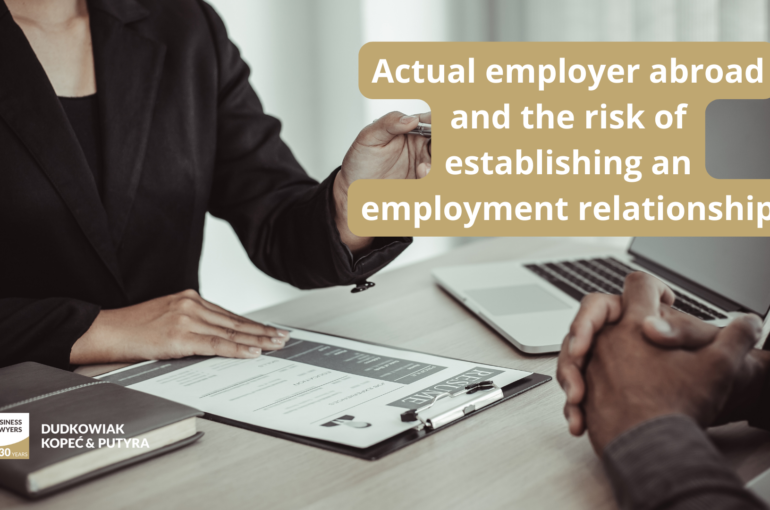European Labour Authority – help or trouble for the entrepreneur?
A new European agency, the European Labour Authority (ELA), was inaugurated on October 16th. Although the powers and modus operandi of the EPO result directly from the Regulation (EU) 2019/1149 of the European Parliament and of the Council of June 20th, 2019 establishing the European Labour Authority, appropriate decisions concerning the functioning of the new institution and its priorities for action will be announced on December 3th. Therefore, questions about the practical aspects of the functioning of the new office are still loud and clear among practitioners.
What will be the fundamental role of the European Labour Authority?
The need to establish a new office was a response to the dynamic situation on the EU labour market. According to the European Commission, there are currently 17.5 million European citizens living or working in a Member State other than their own, which is twice as many as in the last 10 years. In connection with the above, a new institution was established, whose task will be to facilitate cooperation between individual EU Member States in order to minimise the so-called „black area”; of the labour market, facilitate cooperation between EU and national offices and institutions in search of solutions facilitating the movement of workers and act as a „conciliator”; between the authorities of the Member States in the event of cross-border disputes. The Authority has competence in the matters to which the provisions on worker mobility apply: free movement of workers and posting of workers, coordination of social security systems and certain provisions applicable to the road transport sector. In these areas, the Office is to provide assistance to Member States and the European Commission in the effective application and enforcement of EU law. In summary, the Authority is to facilitate cooperation and information, coordinate, support and assist.
At the same time, however, the „ELA” has also been granted control powers which, according to labour law experts and practitioners, may dominate the activities of the new agency, which raises legitimate doubts. On the one hand, the ELA will not have autonomous control powers, as the Regulation explicitly provides for concerted and joint inspections, which will require the consent of all participating Member States. Joint inspections mean that the control will be supervised by a tripartite delegation from Poland, another Member State and representatives of the ELA. The agreed inspections will be carried out in parallel in a minimum of two Member States with the support of the Authority. On the other hand, it should be noted that such key issues as the right to participate in the activities of the controlled entrepreneur with the rights of a party, the scope of rights and obligations of the controlled entities or procedural and material provisions on the basis of which such controls will be carried out are still under question. All this makes it unclear whether the new office will de facto favour entrepreneurs.
Another emotionally arousing power of the ELA is the „the development, in cooperation with the national authorities and, where appropriate, the social partners, of common non-binding guidelines (…) as well as common definitions and concepts„, as indicated in the Regulation. Thus, the practical effect of exercising the aforementioned competences may include, among others, issuing interpretations of EU law. Here, too, there are many practical questions that arise – who will produce these non-binding recommendations, will it be possible to challenge them before the Court of Justice of the EU, for example, and what will be the consequences of invoking such contested recommendations in the course of an audit?
Which model of action will the new office adopt – will it be a controlling institution or rather a supporting and informative institution or, contrary to common expectations, in view of the small area of „hard”, own competences, will it become a product of little practical significance? Time will tell.


